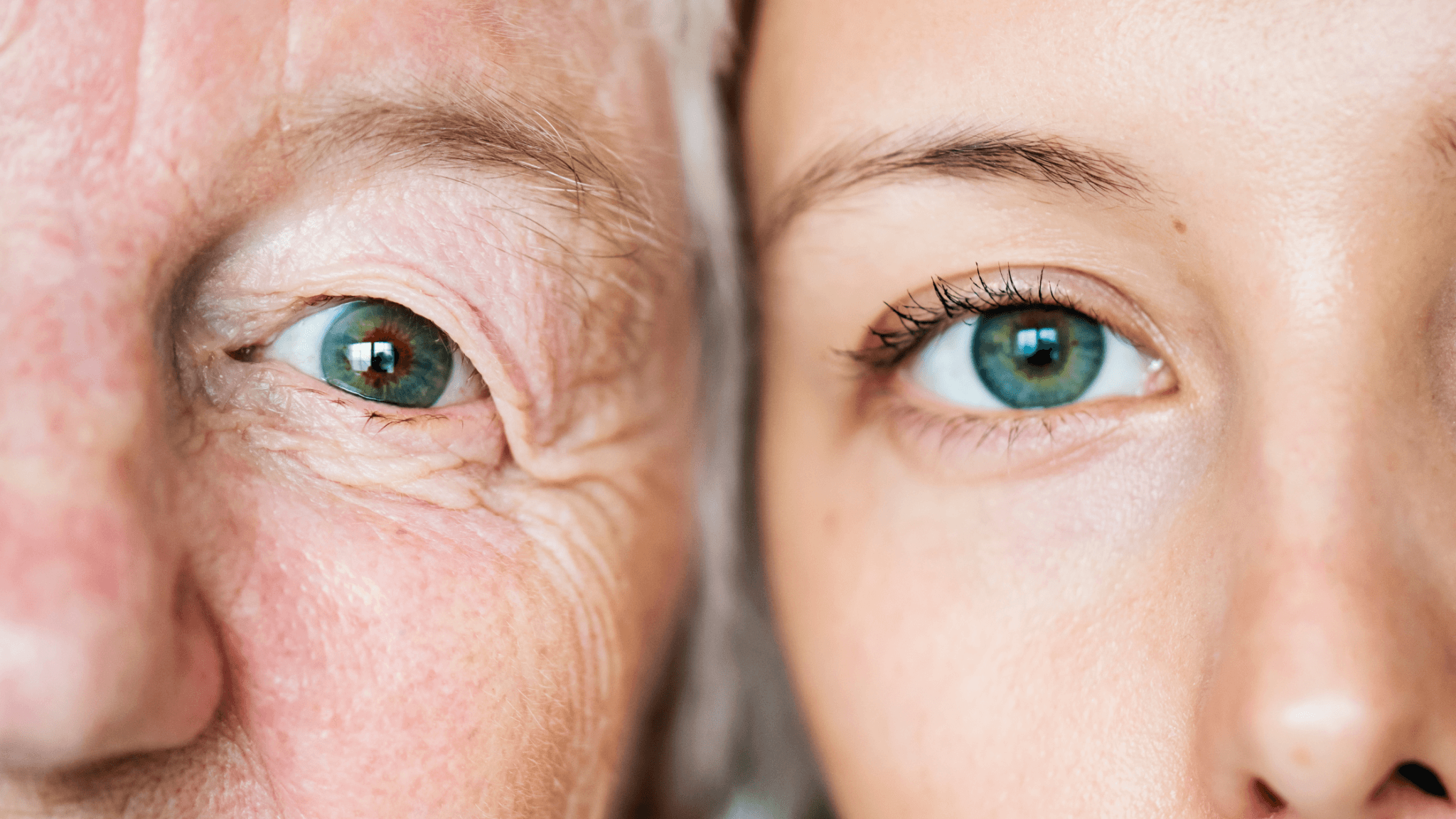As the years' pass, our skin naturally becomes rougher, slacker, more fragile and increasingly wrinkled. But what lies behind these changes?
We all want to discover the Holy Grail for dewy, eternally youthful-looking skin. In our search for the elixir of youth, we are presented with confusing advertising messages – talking of ‘active ingredients’, ‘secret blends’ and patented technology.
Yet rather than listening to the latest marketing message of the shiniest new line-up of anti-aging creams, we’d all be better served if we understood why our skin changes the way it does. Then, and only then, we can weigh up whether the products in front of us could possibly (finally) be that miracle cure.
So allow us to enlighten you on the basics (and a little science). Let’s explore the four main causes of aging skin, together.
#1 Lack of Collagen
Collagen is the main protein in the skin – providing for 75% of its substance. In our younger years, our collagen levels are high, and our skin is consequently bright and firm. However over time, collagen fibers don’t reproduce as quickly as they once did, and gradually the collagen breaks down and degrades.
#2 Ultraviolet (UV) Radiation
For decades, there have been stark warnings about how critical it is to protect our skin from the sun. Yet asides from cancer, we can often underestimate just how big an impact UV can gradually have on the appearance of our skin (even for committed wearers of factor 50).
There are two forms of UV rays emitted from the sun – UVA and UVB – the former tan us and ages us in the way of wrinkles and sunspots, while the latter causes sunburn and cancer. Both are as bad as the other, with repeated exposure leading to fine lines, wrinkles, age spots, freckles, scaly red patches, and, in the worst-case scenario, also leading to rough, tough, leather-like skin.
Learn how to avoid this: Top Tips on Protecting Skin from the Sun
#3 Lack of Hydration
The outermost layer of your skin is called the Stratum Corneum, which consists of something known as Natural Moisturising Factor. Water LOVES NMF and binds with it to keep your skin happy and hydrated.
Healthy, radiant skin will contain between 10 – 20% water. When it dips below this level, your body is officially dehydrated – which kick starts a process that leads to dry, flaky, cracked, and irritated skin – not a good look (certainly not the picture of perfect skin health). Dehydration also means that our skin appears to lose volume, which further emphasizes lines and wrinkles.
Dehydrated skin is a poor defense against the rigors of sun exposure – with the UV rays compromising the outer layer and breaking down the skin’s elastin (think of elastin as collagen’s equally as bouncy big sister – an essential form of fiber with the sole job of helping your skin tissue ‘snap back’ into shape).
In summary, the moral of the story is to drink water, and plenty of it, for fresh, firm skin.
#4 Toxins
Toxins… they’re everywhere – in the food we eat, the drinks we consume and (the worst offender of all) pumped out from the cars we drive.
So destructive are toxins, that recent research has found cause to believe that they are perhaps the biggest contributor to the aging of all, with city-livers suffering from rapidly accelerated wrinkles and age spots.
Digging into the science behind this phenomenon, we find that teeny weeny particles, such as so-called PMs, nitrogen dioxide (NO2), and polycyclic aromatic hydrocarbons (PAHs) can be catastrophic for our skin (one study found that as little as a 10 microgram increase in NO2s per square meter increased age spots of 25%).
On the food and drink front, sugar-loaded products are the main culprit when it comes to age acceleration. This is because of the process the body undergoes when overloaded with sugar. Called glycation, when we eat more sugar than the body can process, sugar molecules stick to our proteins, which can go on to damage our precious collagen.
Causes of Aging: Final Words
There you have it – a little science behind the aging process and causes of aging skin. With a little education under your belt, you can now look for the products and ingredients that actually give your elastic, collagen, and NMF a helping hand in the fight against aging stigma and help you make small adjustments, restructuring habits as you gracefully age, gaining more and more value that you can give back to the world.
That kind of product is Pure Yeva’s 3-Step Anti-Aging Skincare Set. Packed with healing, nourishing, protecting, and restorative ingredients, this pro-aging skincare bundle promises to make you fall in love with your skin again!
Enjoy comprehensive skincare and embrace well-aging with Pure Yeva.

